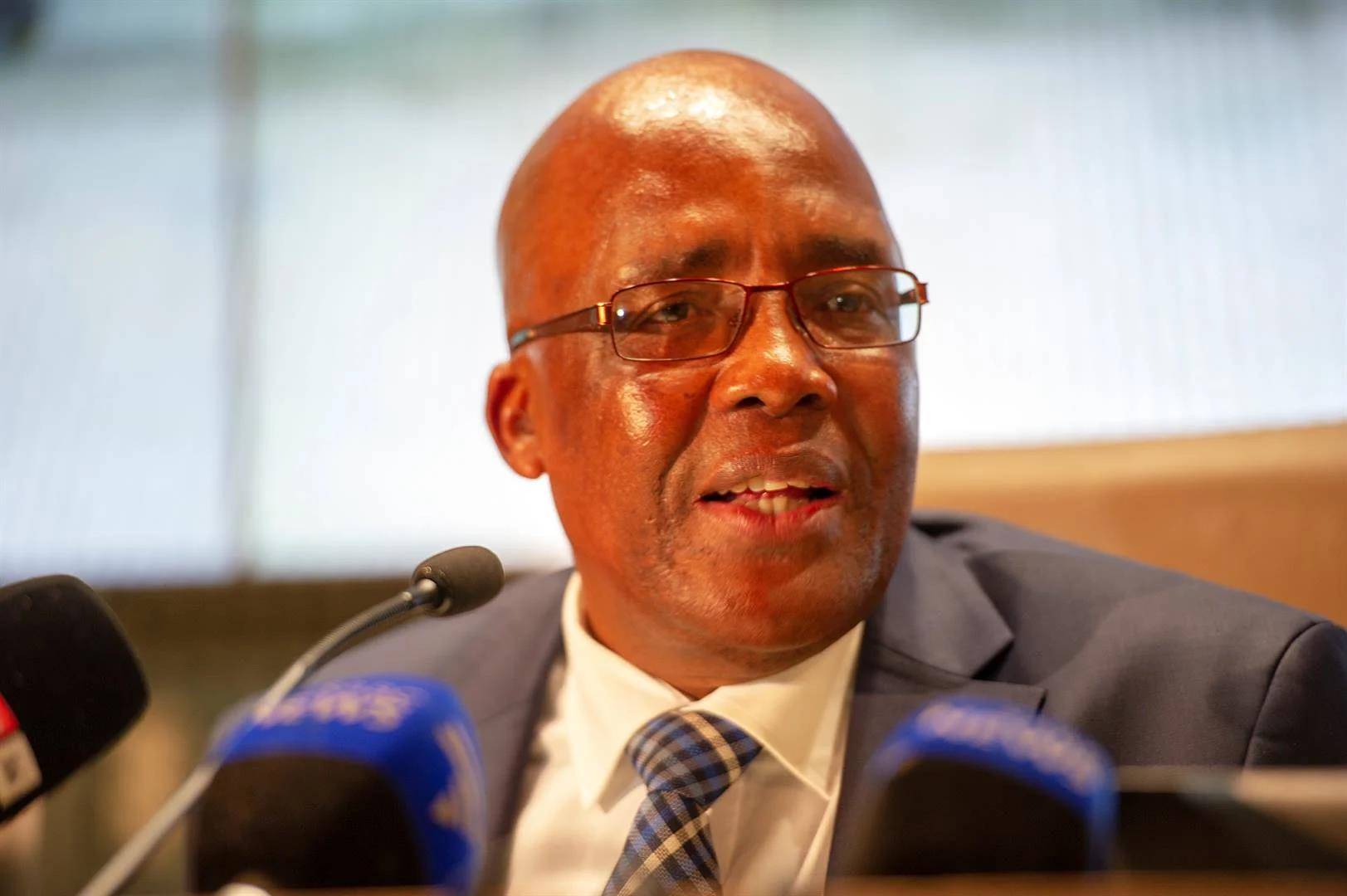
Home Affairs Minister Aaron Motsoaledi. Photo: Elizabeth Sejake
- The PSC implemented changes to improve service delivery.
- It says there was an increase in reported whistleblowing cases for 2022/2023.
- The commissioner addressed the issue of late pension benefit payments.
The Department of Home Affairs has taken the necessary steps to modernise its facilities to eradicate long queues and long distances travelled to access its services, says the Public Service Commission (PSC).
The PSC, responsible for overseeing the management and efficiency of the public service in various departments, released a report, which covers the period from 1 January to 31 March.
Addressing the media on Thursday on the outcomes of its Quarterly Bulletin: The Pulse of The Public Service, the PSC’s commissioner, Anele Gxoyiya, said its investigations “yielded positive results in improving good governance and accountability in the public service”.
Gxoyiya touched on the challenges in SAPS’ Forensic Laboratories, which has a 2.4% backlog, the late payment of pension benefits, and the status of implementing recommendations for service delivery at the home affairs department.
According to the PSC, based on the inspections it conducted in 2022, the backlog caused a delay in cases going to trial as well as in identifying the remains of individuals.
READ | Govt departments pays millions to suspended officials – PSC
It suggested on-the-spot implementations, such as relocating the laboratories close to hospitals or public facilities, and exempting it from load shedding, among others. As for the home affairs department, Gxoyiya said it had made substantial efforts to improve, including the rollout of Jojo tanks and generators and introducing an online booking system for those visiting its offices. These changes came after the PSC conducted unannounced inspections of 57 department offices nationwide in 2021.
Gxoyiya said the department had added 20 mobile units to its 110 existing units and was planning to get an additional 100 mobile offices to reduce “foot traffic” and service demand. The department also “identified a niche opportunity based on public requests for providing premium services to clients who choose to pay more for quick and convenient services rather than the normal tariff for its products to avoid queues”, Gxoyiya said.
The commissioner noted an improvement in stable network connectivity, but the department “indicated that offices and sites experiencing a higher level of stable connectivity are not connecting through State Information Technology Agency (SITA) or its service providers”.
Gxoyiya said SITA offered a “number of interventions to deal with downtime”, was seeking an alternative to copper, and was upgrading its hubs to attain consistent online status.
The department also introduced a hybrid office model to “provide consistency and common requirements per type of office”.
Gxoyiya said the PSC would continue to monitor the department to improve its overall performance, including meeting with Home Affairs Minister Aaron Motsoaledi to discuss its findings and the effectiveness of the implementations.
He also spoke about the late payment of pension funds. He said inefficient administration and increased awareness of unclaimed benefits, estimated at R2 billion in 2022, contributed to the delays experienced.
Gxoyiya said:
The majority of delays are often because employers have not paid over contributions to the funds, although it is the responsibility of the fund to ensure that contributions are paid.
To resolve this, Gxoyiya said there was a need for integration and policy interventions due to the “untold suffering on the part of dependents and beneficiaries who would have submitted all the documents on time and yet their benefits are unpaid for a number of years”.
Gxoyiya also spoke about the grievances the commission had received from employees in national and provincial offices.
The majority of the cases were related to salary issues, performance management and unfair treatment. Cabinet had assigned the PSC to handle the National Anti-Corruption Hotline, for the public to report corrupt activities anonymously to “encourage safe reporting”.
A total of 2 118 cases had been reported via the hotline in 2023/2024, which is an increase from 1 563 in 2021/2022. Of these cases, 480 officials were found guilty of misconduct.
ALSO READ | New pact: Business, govt agree to fight corruption, energy crisis with same urgency as Covid-19
“The PSC is concerned that departments are taking an extended period in providing feedback, despite the fact that whistleblowers are requesting feedback on progress made with investigations,” Gxoyiya said.
“Generally, many investigations are prolonged due to a variety of factors, like complexity and retrieval of supporting information. As a result, the PSC developed a complaints-handling mechanism that will assist in managing complaints received by the PSC.”
Gxoyiya described the ideal public servant as a person “who performs duties for the state in a diligent manner”, adding that their goal was to “ensure effective and efficient performance in public administration and a high standard of professional ethics”.